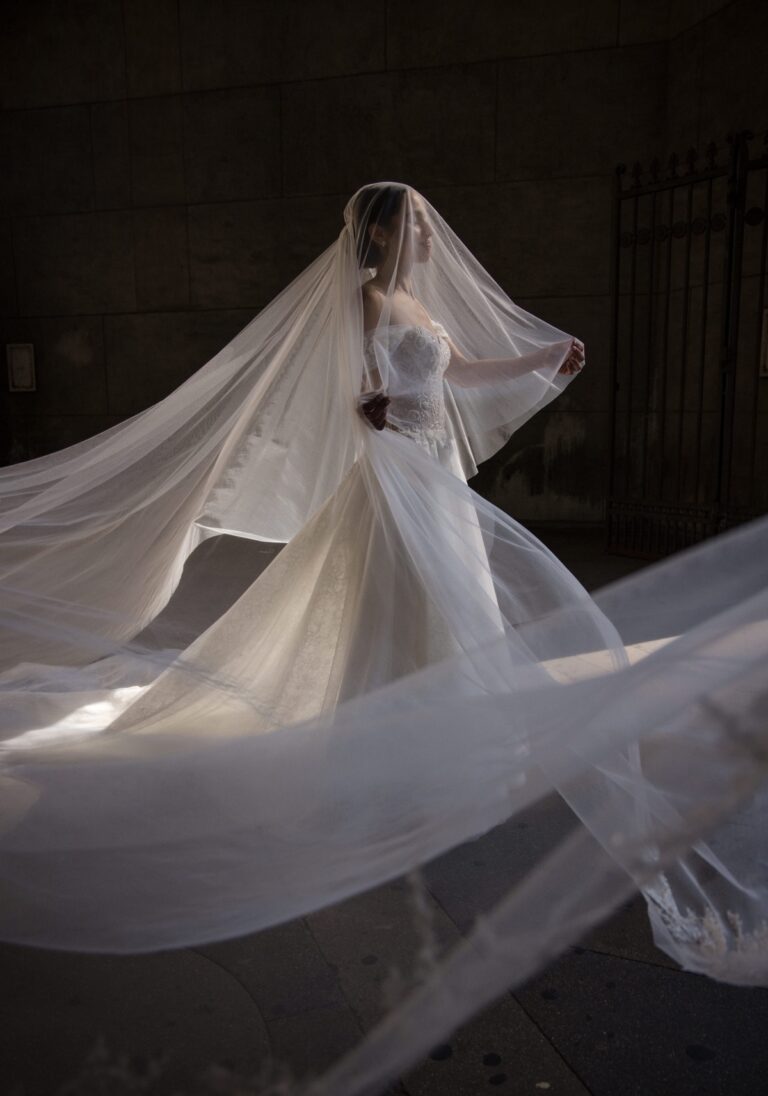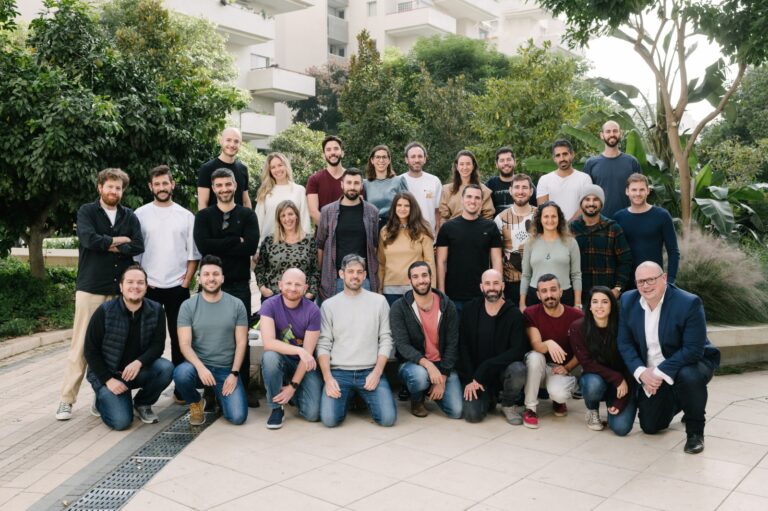When Yoav Chai got married in 2021, he wondered why he and his bride had to wait several months to get the pictures back from the wedding photographer.
The answer, he discovered, was that photographers do significant post-production work, everything from fixing the white balance and color mix to tossing out blurry images and cropping photos so they really pop.
Post-production is time-consuming and, frankly, not all that interesting to photographers who would rather spend their time taking, rather than processing, photos.
Given that wedding photographers take up to 3,000 digital pictures at a single event, a single week of wedding gigs can create a serious backlog – photographers can spend almost two hours on post-production for each hour of shooting.
Photos can be sent to India and other emerging economies to be edited for 25 to 30 cents an image, but quality isn’t consistent.
As Chai listened to his photographer explain the bottleneck, he donned his entrepreneur hat. Chai focused on computer vision and image enhancement during his master’s degree studies at Tel Aviv University.
Could that same approach be applied to speed up the delivery of wedding albums, he wondered? The answer is a resounding yes.
The company Chai cofounded, Imagen, has signed up tens of thousands of photographers and has processed 150 million images since launching in July 2020.
Half a second per photo
Chai is cofounder and chief technology officer of Givatayim-based Imagen, which uses artificial intelligence to capture an individual photographer’s “style” that can then be applied to batch-process photos in seconds, not hours.

Imagen claims an editing speed of less than half a second per photo. The service costs a minimum of $7 a month plus 5 cents per photo. Cropping and straightening cost another penny a picture. The first 1,000 edits are free.
Imagen works with Adobe Lightroom Classic, the desktop app used by 90% of wedding photographers.
To get started, photographers upload a minimum of 3,000 photos they’ve previously edited from Lightroom. The upload includes both the original and edited versions, allowing Imagen to learn what the photographer’s preferences are for different types of photos and lighting.
The resulting style guidelines are automatically applied to all new photos in the photographer’s Lightroom catalog.

Thirty percent of Imagen customers use a second option, Talent AI, which applies styles created by top photographers from around the world such as Susan Stripling, Fer Juaristi and Charmi Patel-Pena.

Either way, photographers can always manually edit any photos.
Improving productivity
That’s exactly how Israeli wedding photographer Larry Brandt uses Imagen.
“Imagen does a perfect job of getting the photographs basically edited, leaving me only the task of tweaking where necessary,” he tells ISRAEL21c.
Brandt has used outside editors but, he says, “they are often students who then move on to other jobs, leaving me to have to find and train a new editor.”
And in any case, he adds, “I haven’t yet found an editor who can edit reliably in my style and according to my specifications.”
Others, such as veteran Jerusalem-based wedding photographer Meir Zarovsky, are less convinced.
“I’m a purist when it comes to photography,” he tells ISRAEL21c. “I’ve always done my own editing and I’d never let someone else with a computer do it for me.”
But now that weddings are back, big time, Imagen has plenty of potential clients.
When Chai teamed up with Yotam Gil, today Imagen’s CEO, to build Imagen at the height of the pandemic, weddings were either postponed or transformed into small, low-key affairs.

By 2021, though, as lockdowns and restrictions began to wane, weddings came surging back.
“Twice as many people now wanted to get married and photographers were desperately looking for ways to improve their productivity, “Gil tells ISRAEL21c. “It gave us a good backwind.”
There are between one and three million wedding photographers worldwide. In the United States along, there are some 2.4 million weddings a year.

Not just weddings
While weddings are Imagen’s focus, around 30% of clients using the software do other types of work – school photography, sporting events, conferences, maternity shoots, family portraits. Next up: food and real- estate photography.
Around 10% of Imagen’s customers are media studios that employ multiple photographers. The remainder are small, one- or two-person mom and pop businesses.
How did Imagen build such a large base of customers so fast?
“At first we didn’t have money, so we worked with the outsourcing companies,” Gil explains.
“They would get the pictures from the photographers and then send them to us. Later, we began direct marketing to the photographers themselves. The good thing about wedding photographers is they prefer sharing over competition – they like telling others about new products. Influencers and referrals really helped us grow fast.”
Speaking of competition, Imagen has it, but it’s mostly manual and doesn’t use AI. For example, ShootDotEdit, based in San Diego, hires human editors in India. Adobe has some AI in Lightroom, but at a price of just $10 a month, “they can’t treat each user personally,” Gil says. “They give good features for a lot of their customers, but they can’t learn your own style.”

Imagen’s software is available in English, with German, Spanish, French and Japanese coming soon. (That choice also gives a clue as to where most of Imagen’s customers are based.)
After bootstrapping the company for the first year, Imagen raised an initial seed round of $4 million from Gigi Levy’s investment fund, NFX, and in December 2022 another $30 million from Summit Partners with Levy’s participation.
Culling the best shots
Imagen is now working on the product’s next feature – “culling,” the professional term for selecting the best photos from shoot.
“When we asked photographers where they spend most of their time, 56% said editing followed by 20% who answered culling,” Gil explains.
How does the AI know which pictures to keep and which to trash?
First, any blurry or out-of-focus pictures are removed along with those where subjects’ eyes are closed.
“From the ones remaining, we look for the most flattering pictures. It could be a smile or showing emotion or a special moment. Once you train the AI, you can identify that,” says Gil.
Once Imagen sends its choices, the photographer chooses which work best. The AI learns from those selections to become more accurate and personal over time. If a wedding photographer takes 5,000 pictures – not uncommon for multi-camera events – Imagen’s culling will get that down to between 800 and 1,000 pictures, which is what the newly married couple typically receives.
Wedding photographer Brandt isn’t 100% sold on the culling feature.
Closed eyes and blurry pictures “are far from being the only criteria,” he tells ISRAEL21c.
“Subtle facial expressions, composition and content are also very important factors, and they are much harder, if not impossible, to teach a computer algorithm. Add to that the fact that some photographs that may seem objectively bad to the AI may actually be a deliberate artistic choice — like telling the bride to close her eyes in order to show off her makeup.”
Gil notes that photographers accept 80% of the edits Imagen makes with the rest requiring just subtle fixes. Yes, it may miss an artistic arrangement here or there, but that’s a small price to pay for the hours and money saved by letting a computer rather than a human being do the heavy lifting
Brandt appreciates that benefit – which is why he’s planning to stick with Imagen. “Imagen saves me time with some of the more boring and repetitive tasks that don’t require artistic input. I then add the finishing touches.”
If you’re a photographer, wedding or otherwise, check out Imagen’s Instagram page.

















